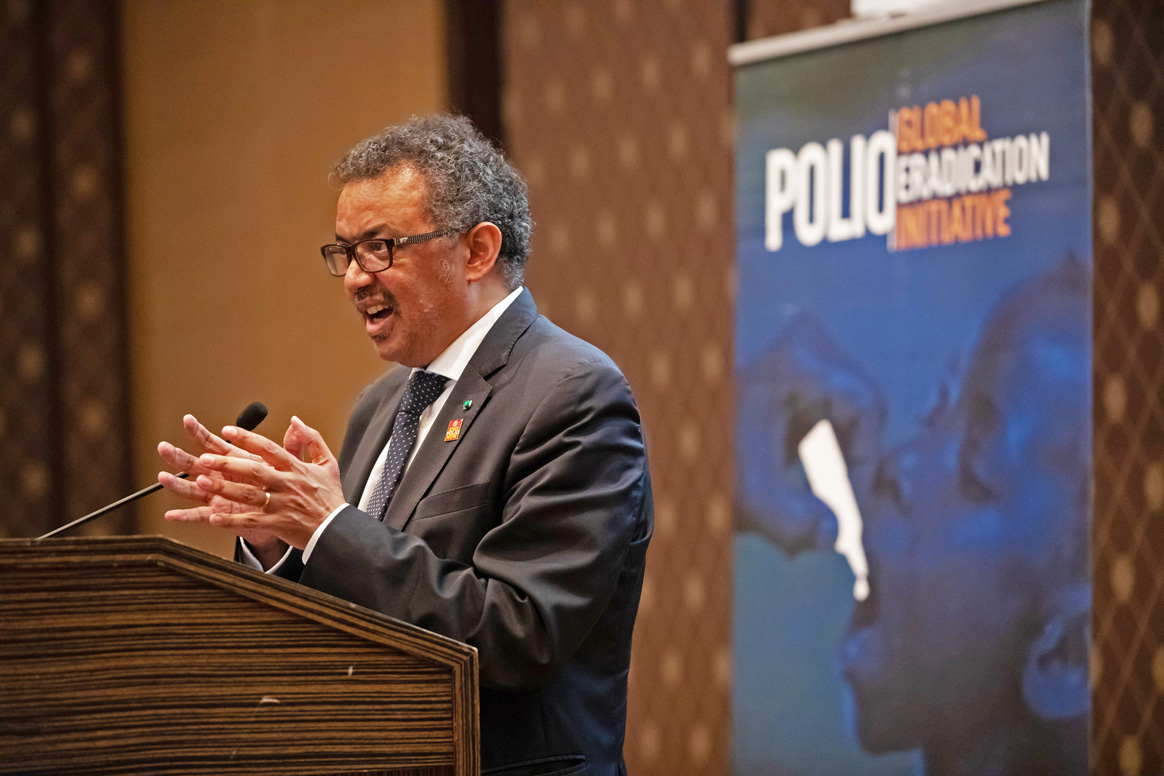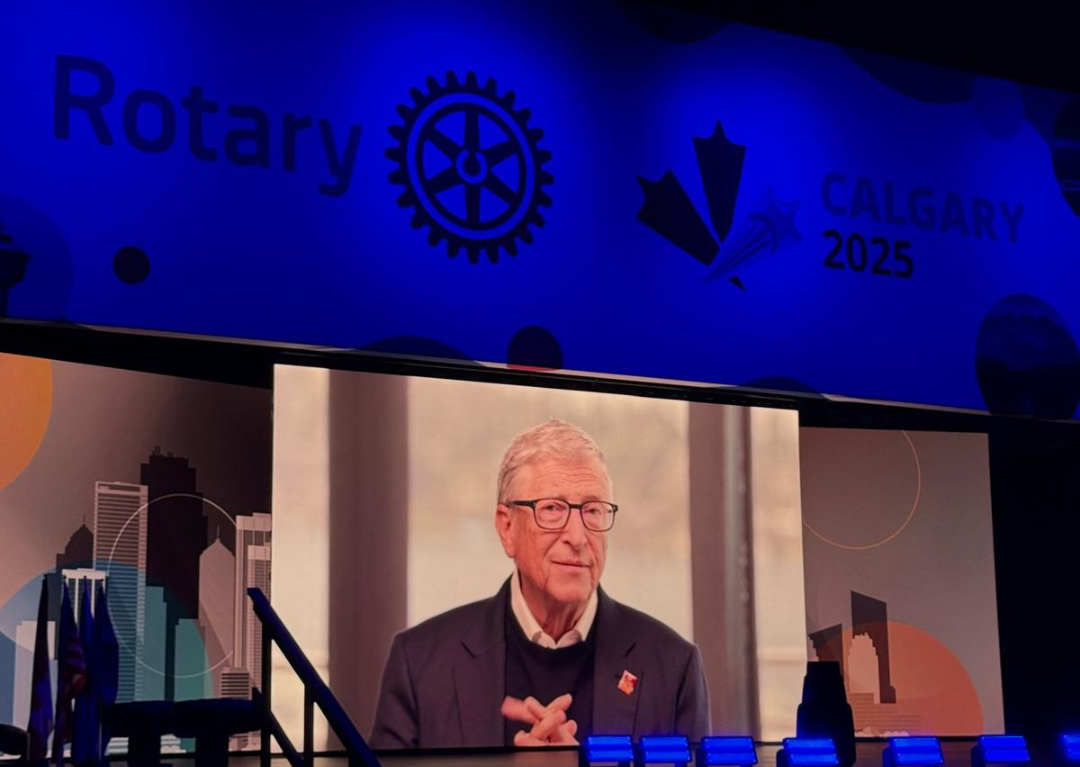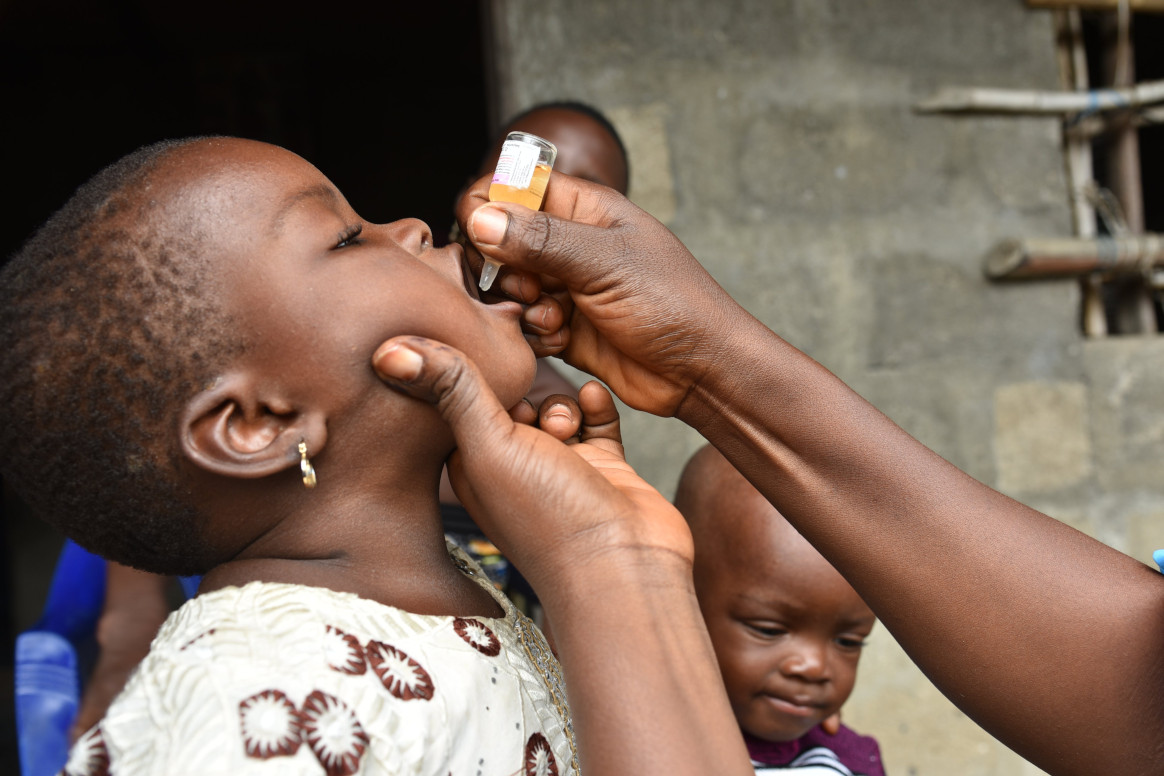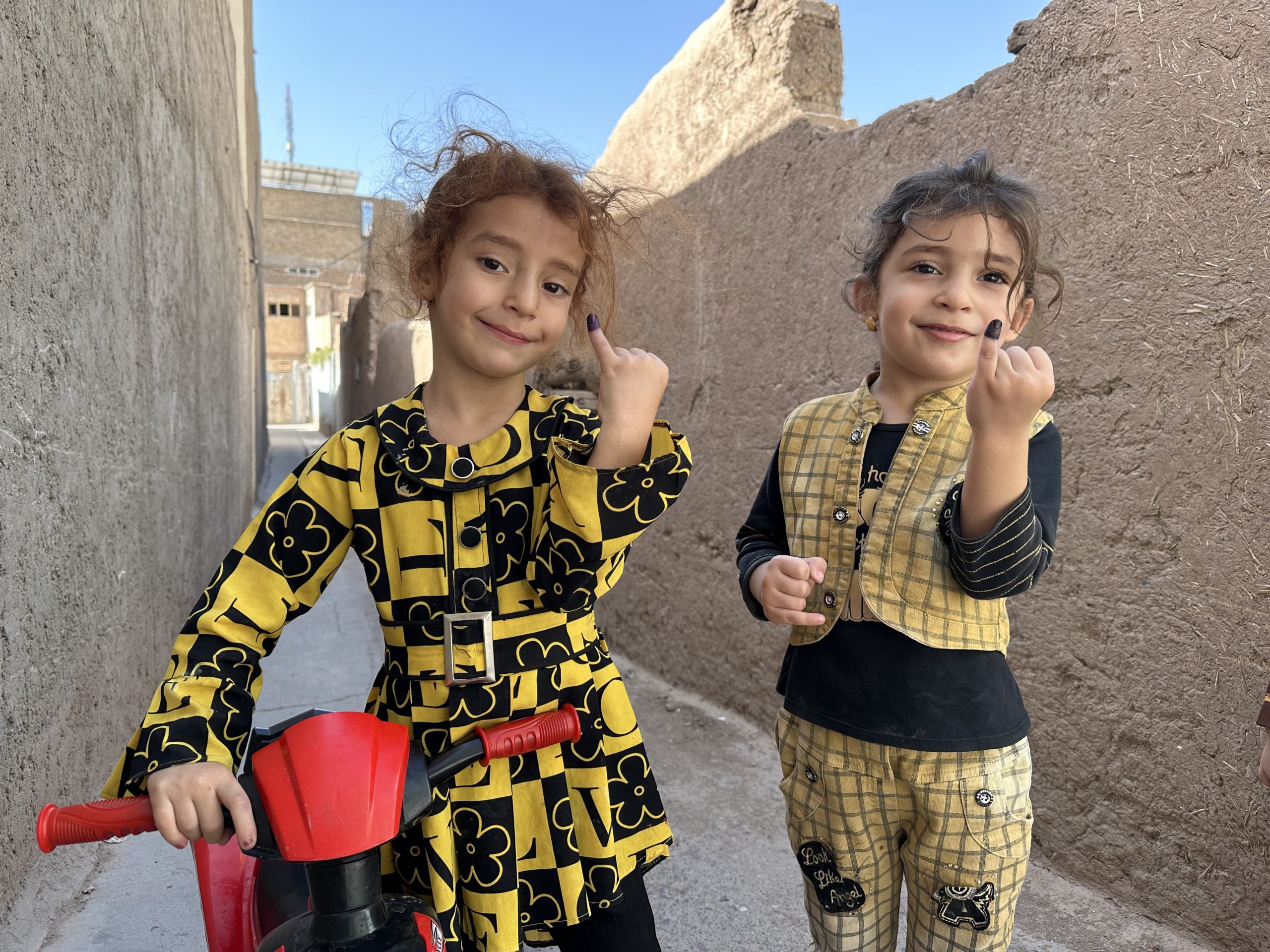Reposted with permission from Rotary.org.
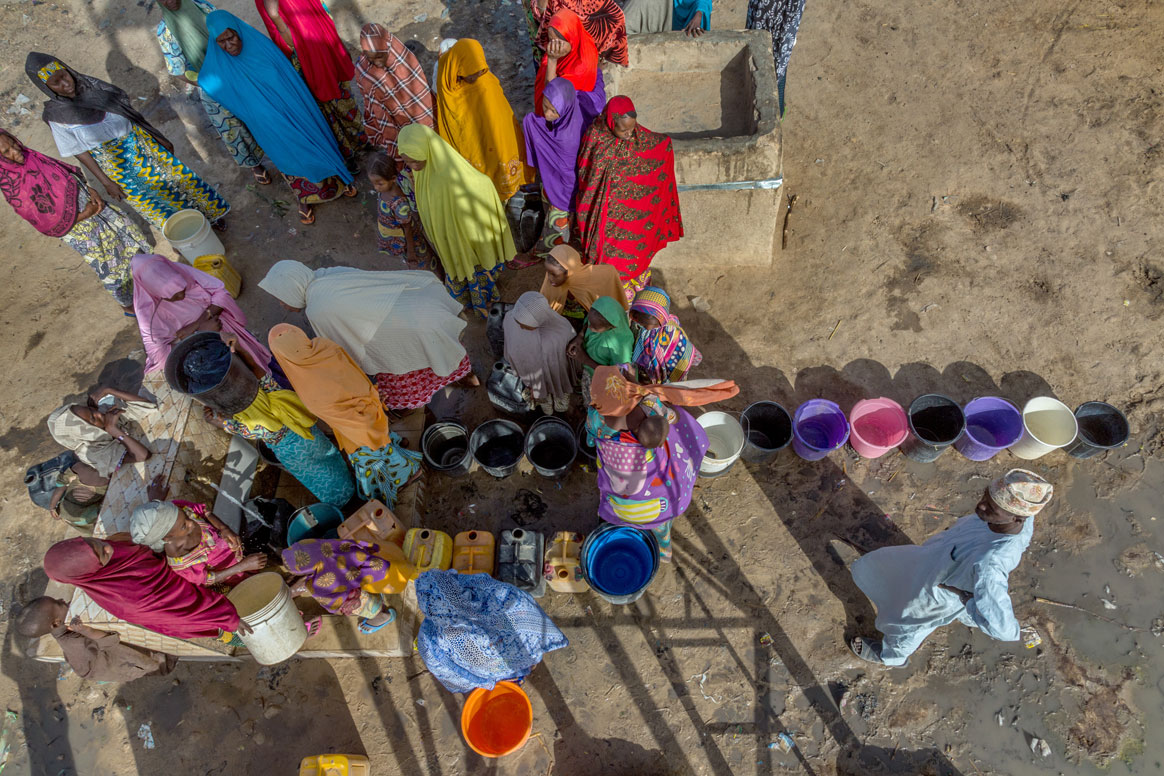
When we talk about PolioPlus, we know we are eradicating polio, but do we realize how many added benefits the programme brings? The ‘plus’ is something else that is provided as a part of the polio eradication campaign. It might be a hand-operated tricycle or access to water. It might be additional medical treatment, bed nets, or soap.
This series looks at the ‘pluses’ that Rotarians worldwide help to provide. Our first article looked at prevention of other diseases. In part two, we look at another lifechanging intervention: providing clean water for communities.
Providing clean water
Addressing a critical long-term need such as access to clean water helps build relationships and trust with community members. Within camps for displaced people in northern Nigeria, the polio vaccinators who regularly visit communities are sometimes met with frustration. “People say, ‘We don’t have water, and you’re giving us polio drops,’” Tunji Funsho explains. Rotary and its partners have responded by funding 31 solar-powered boreholes to provide clean water in northern Nigeria, and the effort is ongoing.
Supplying clean water to vulnerable communities is a priority of the PolioPlus programme not only in Nigeria, but also in Afghanistan and Pakistan — the only other remaining polio-endemic nations, where transmission of the virus has never been interrupted.
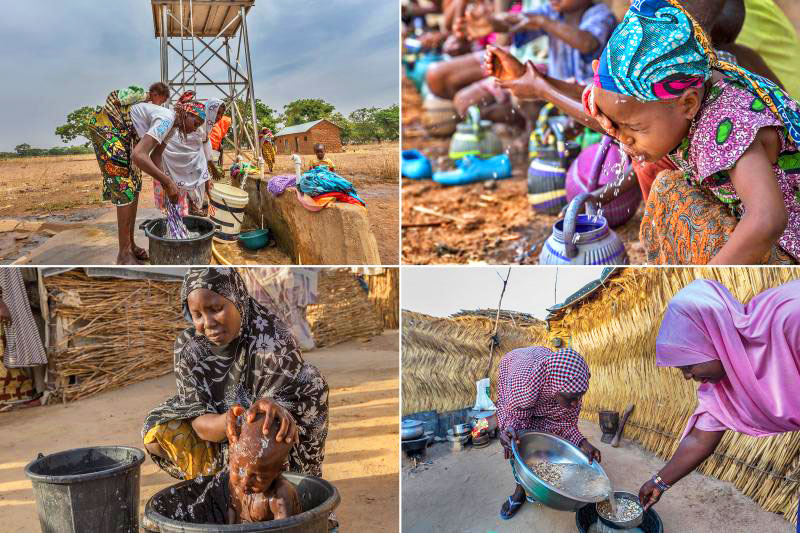
“Giving water is noble work also,” says Aziz Memon, chair of Rotary’s Pakistan PolioPlus Committee.
Access to safe drinking water is also an important aspect of the The Polio Endgame Strategy 2019-2023, which aims to “ensure populations reached for polio campaigns are also able to access much-needed basic services, such as clean water, sanitation, and nutrition.” The poliovirus spreads through human waste, so making sure people aren’t drinking or bathing in contaminated water is critical to eradicating the disease. Bunmi Lagunju, the PolioPlus project coordinator in Nigeria, says that installing the boreholes has helped prevent the spread of cholera and other diseases in the displaced persons camps.
Communities with a reliable source of clean water have a reduced rate of disease and a better quality of life. “When we came [to the camp], there was no borehole. We had to go to the nearby block factory to get water, and this was difficult because the factory only gave us limited amounts of water,” says Jumai Alhassan, as she gives her child a bucket-bath. “We are thankful for people who provided us with the water.”
By looking holistically at the needs of communities, Rotarians are ending polio, and making a significant contribution to overall health.
This story is part of the Broader Benefits of Polio Programme series on our website, which originally appeared in the October 2019 issue of The Rotarian magazine. Read part one.
The polio eradication campaign needs your help to reach every child. Thanks to the Bill & Melinda Gates Foundation, your contribution will be tripled. To donate, visit endpolio.org/donate.
